Inside Chelsea’s experiment and the problem holding Mauricio Pochettino back
Chelsea’s ‘kids’ have faltered in the Argentine’s system and Miguel Delaney outlines how four games could decide the club’s destiny

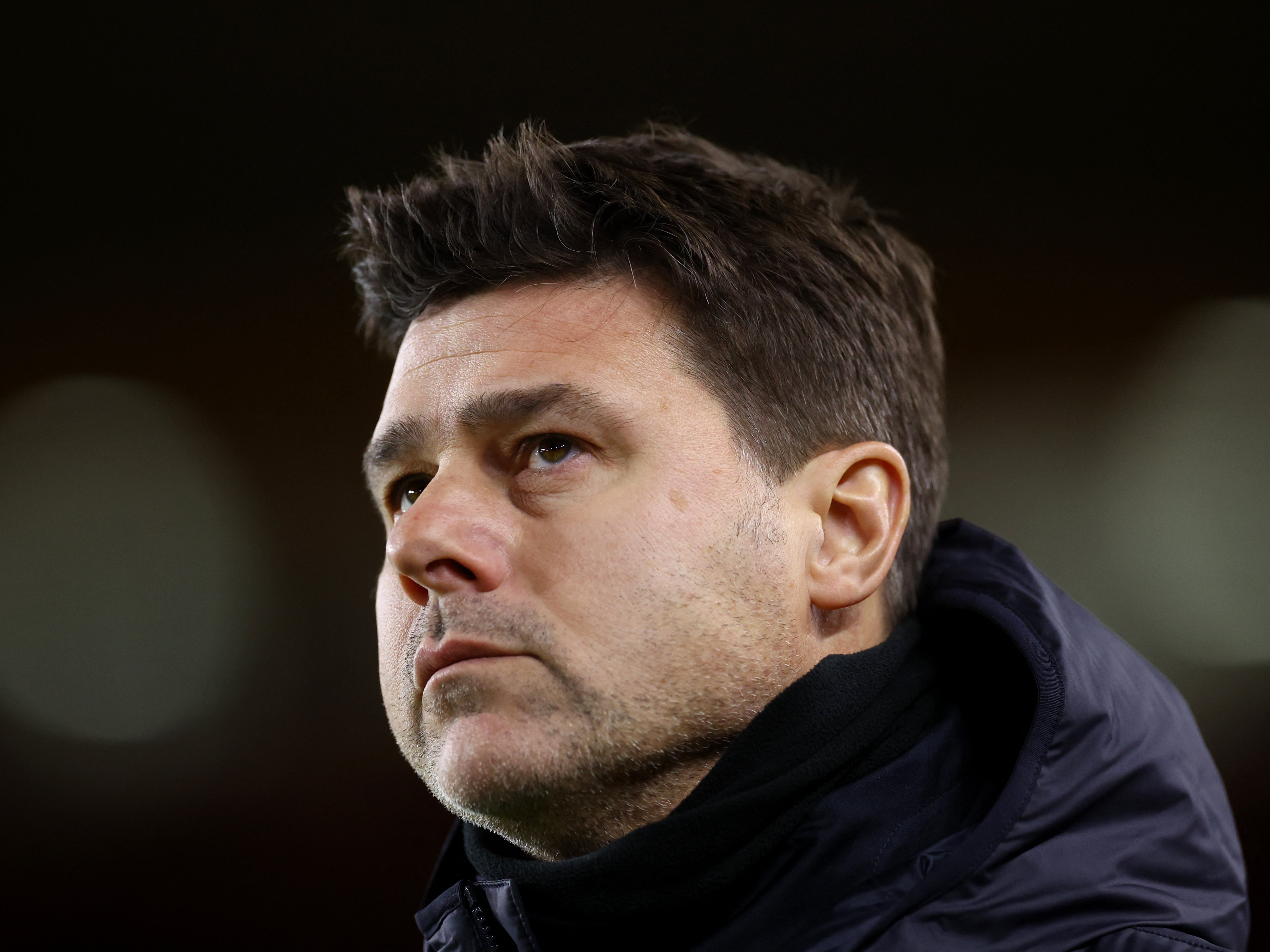
If this January’s market has seemed quiet, it’s in part because there have been very active discussions behind the scenes at the biggest spenders of the last three windows.
Chelsea are trying to figure out how they can still meet the Premier League’s profit and sustainability (P&S) requirements and bolster the squad.
They want a major striker, above all Napoli’s Victor Osimhen. The club owners’ recent purchase of 1,000 shares for £140m isn’t viewed as an indication of budget, though.
Mauricio Pochettino has publicly said he has been told they don’t need to sell to buy. This Chelsea hierarchy has generally attempted different methods, constantly looking at angles others haven’t thought of yet.
Some in football would go further, though. One description is that Chelsea are undertaking a huge experiment never before seen in football.
If so, they could be about to come across another finding.
The next four games, across all three domestic competitions, could well decide the entire campaign. They may also dictate Pochettino’s future, despite assurances that he is not under any threat. Results can develop a momentum of their own, which is precisely what this period threatens.
On Saturday, Chelsea have one of those awkward Premier League fixtures: a home derby they should be expected to win but nobody would be surprised if Fulham beat them. A good result is almost more important because there’s then a 10-day break that will give everyone a lot of time to mull over what happens next.
That ends with the Carabao Cup semi-final second leg against Middlesbrough, where Chelsea need to overcome a 1-0 deficit – an opportunity that would feel like a travesty to squander.

Michael Carrick has done a hugely impressive job but it’s still a Championship side against a club that have had the type of expenditure that usually wins Champions Leagues. It’s all for the potential of a first final in this ownership’s time, too.
There’s then an FA Cup tie against an Aston Villa team that have almost been the anti-Chelsea in how they’ve overperformed. It won’t escape attention, either, that the Villa Park leadership initially wanted Pochettino before appointing the revelatory Unai Emery. It could be another result that represents a lesson.
Closing the month, and symbolically coming just before what many perceive to be the club’s main event on transfer deadline day, is a trip to Liverpool that carries all sorts of risks.
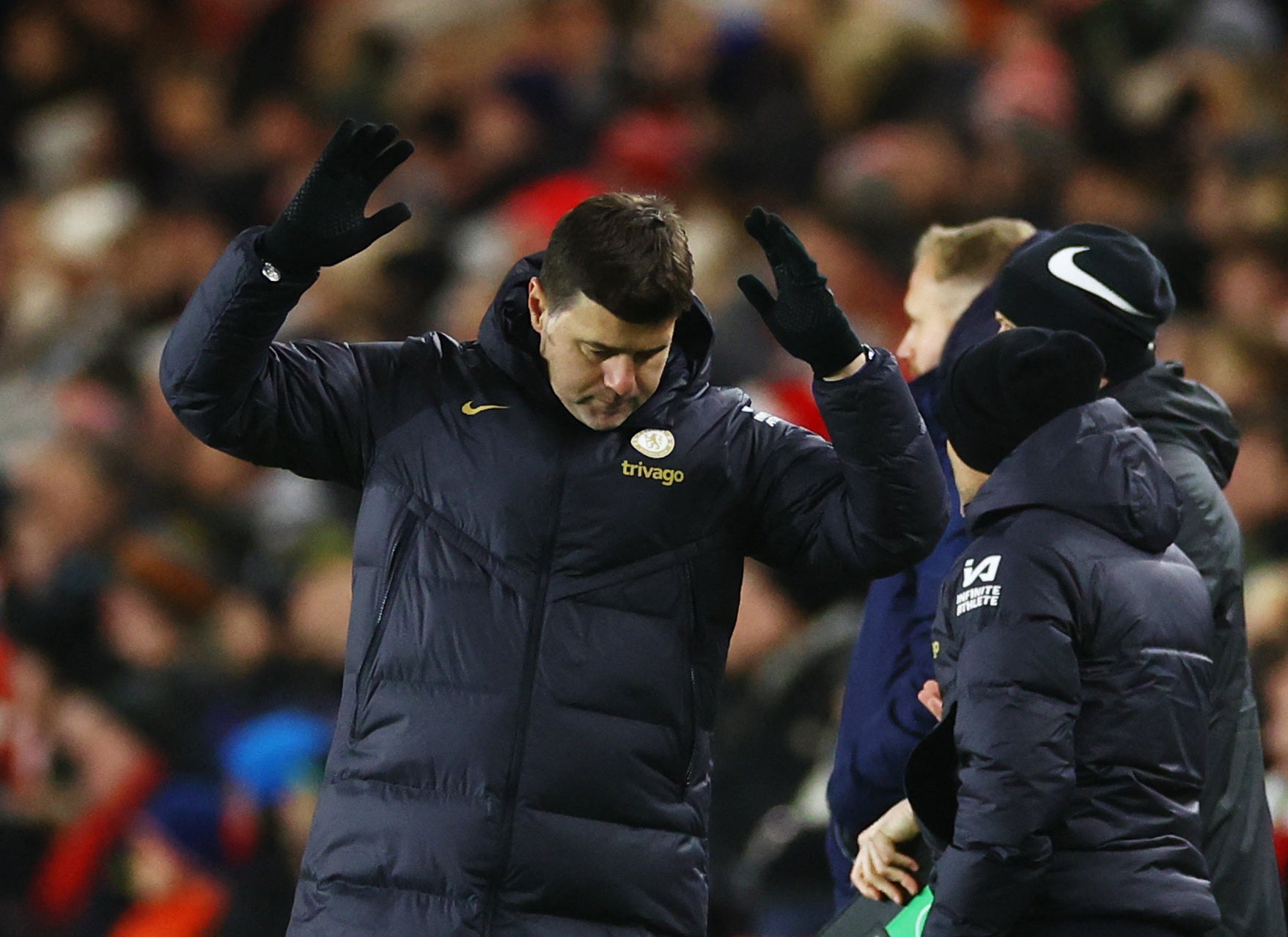
Who knows what Chelsea’s season could look like then, let alone the first XI.
Pochettino has been working to fire a response to the Middlesbrough defeat in training but this points to one of the problems. There has been a sense of frustration at how little seems to permeate, and how it feels like there’s always one step back. The team hasn’t evolved at the rate anyone expected, not least Pochettino himself.
That is in part because so many in the squad have yet to mature.
This is what has been so experimental. The age profile is unlike anything seen at an elite club in the modern game. Even Ajax 1995 and Manchester United 1996, two of the most famous “young” teams, had plenty of senior figures.
The view around football and even within the club is that it is “almost all kids” and “not a usual team to coach”. A common stance from those who work in academy football is that, as recently as five years ago, many of the players would still have been in the under-21 squad rather than carrying the responsibility of one of modern football’s noisiest clubs.
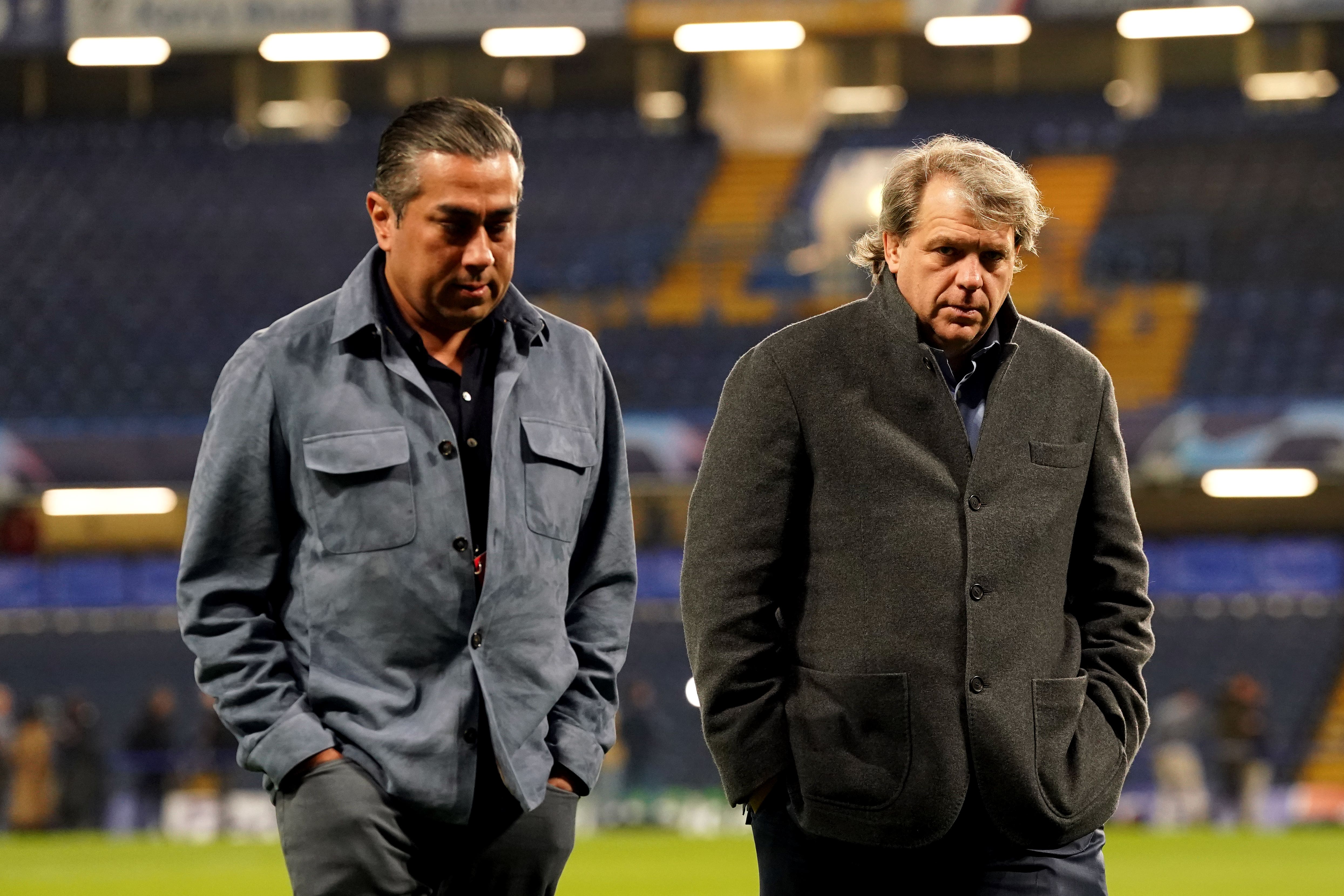
It has been more difficult to impose the manager’s system because, rather than being ready to take it on, some players need more tactical education. Further proof of that comes with how their players on loan have struggled. There’s even a sense from the academy level that the ceiling of some of the signings isn’t as high as Chelsea’s many graduates. One view, for example, is that Bashir Humphries should be ahead of Benoit Badiashile but the latter cost over £32m. It doesn’t yet speak to the idea they’ve just accumulated all the best young talent for a future that is coming fast.
In other cases, Pochettino doesn’t have the players who fit. Conor Gallagher, whom the hierarchy would be open to selling for P&S reasons, is seen as one of the few who immediately gets what the manager wants. He is almost perfect for Pochettino’s idea of a midfielder in his usual 4-3-3. Beyond that, the Argentine is still trying to work out the best balance for Moises Caicedo and Enzo Fernandez.
That sounds remarkable for two midfielders who collectively cost £221m but that was the hierarchy needlessly paying over the odds when there was at least some caution within the club about both fees. The players might rise to that kind of value in time. They aren’t there now, though, as reflected by their lower wages.
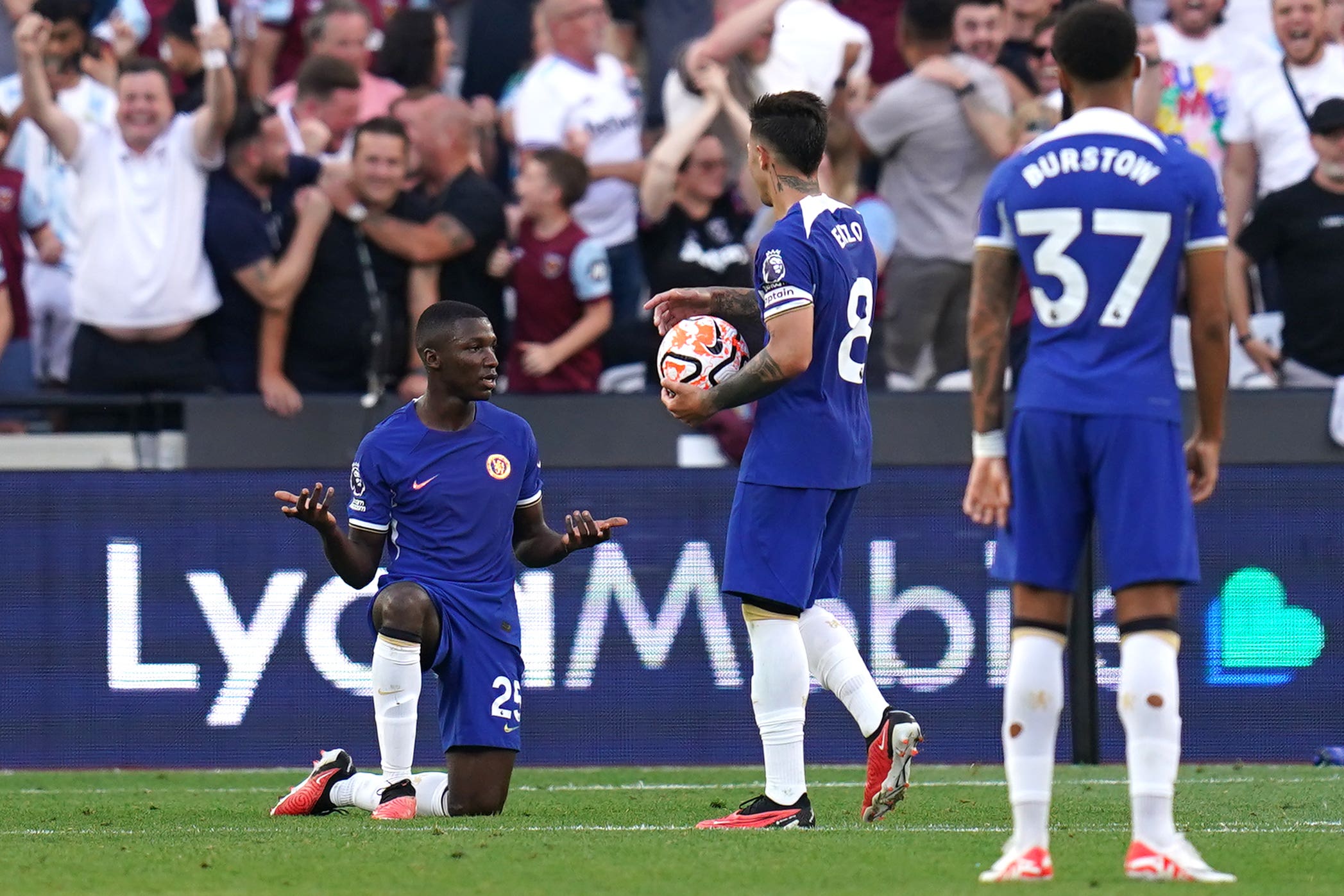
Going for that younger profile of player is a growing trend in football, especially as the game gets more athletic and it becomes so financially stretched. Real Madrid have taken this idea on almost more than anyone else, in how they adapted to a world of state ownership. At least until now. Chelsea are taking it to new extremes.
Through that process, Pochettino himself has gone from one extreme to another. This is the complete opposite of a top-heavy Paris Saint-Germain squad. In Pochettino’s last season at the Parc des Princes, he had a series of players who came for free on huge wages. The Argentine struggled to impose his system there because the club’s star system just didn’t allow it. The three attackers – Messi, Neymar and Mbappe – in particular, were given licence to float. No manager is afforded any authority at PSG. It has meant nobody in charge has thrived at all, including his Stamford Bridge predecessor, Thomas Tuchel.
People might soon say the same about Chelsea.
A fair response to all of this is that Pochettino knew what he was taking on. Most of it was explained in the drawn-out appointment process, where the requirements were made clear.
That does bring pressure on Pochettino beyond this job. It might even be a case study of how the wrong choices at the wrong time can ensure a career goes unfulfilled.
The Argentine is still considered a coach the super clubs would look to, but not in the way he was in 2018.
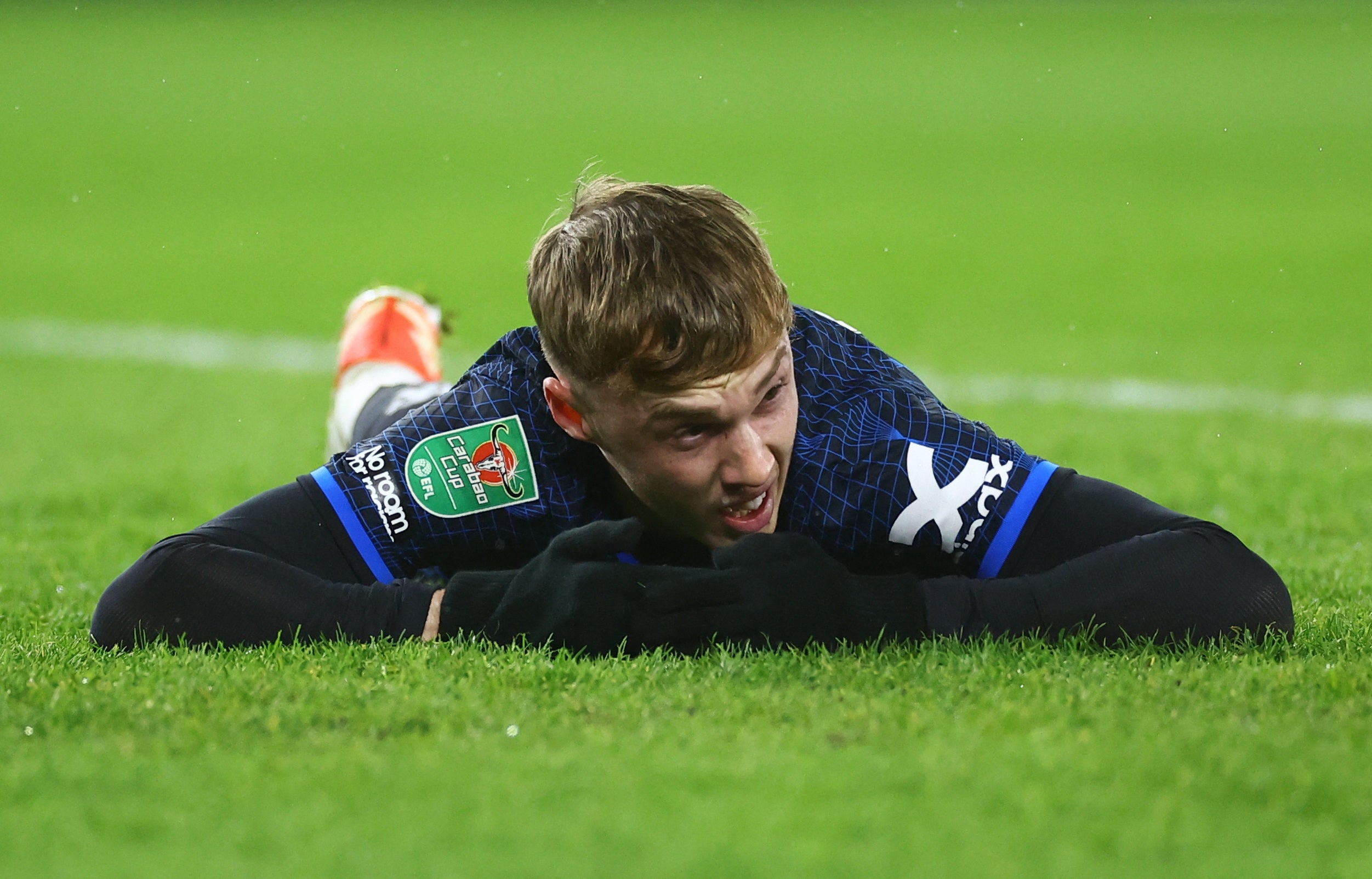
That was when Real Madrid were desperate to appoint him, while Manchester United retained a long-term interest. Pochettino decided to stay at Tottenham Hotspur out of trust and some emotion, even though he was already consciously trying to solve a deepening staleness.
The 2018-19 Champions League final may have offered some vindication but he ultimately fell victim to that staleness a few months later. There’s an argument, then, that Pochettino repeated the same mistake twice. He waited too long and then took the wrong jobs because they happened to be big jobs.
Except, it’s still early in this one. If the above is a gloomy analysis, it’s only a prospective situation that brings pressure. Pochettino can work against it.
For all the consternation within the club about the pace of results, there is an awareness that it is much better than at this point last year under Graham Potter.
Chelsea’s analytics are promising. Passages of certain games have looked good. The belief is that some higher-level finishing, of the type such a club should have, would suddenly make Pochettino’s work so far look much better. They have barely had Christopher Nkunku, after all. They now want another forward.
Pochettino similarly has more influence on transfers following a September meeting with the hierarchy after a chaotic window.
There’s almost an irony, though, that comes as Chelsea are restricted in the market for the first time under this ownership. That has brought more focus on the key figures, too. Todd Boehly hasn’t been as visible, which is saying something for someone who just turned up at the Golden Globes with a new haircut.
It has all made for a quieter market and a subdued Chelsea.
The next few weeks may bring a lot of noise, either way.
Join our commenting forum
Join thought-provoking conversations, follow other Independent readers and see their replies
Comments
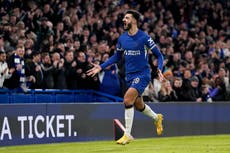
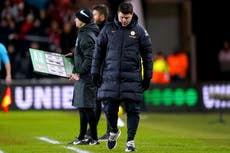
Bookmark popover
Removed from bookmarks